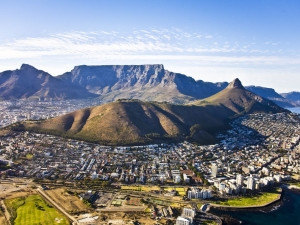
In partnership with Neotel and not-for-profit agency Cape Digital Foundation (CDF), the Western Cape government says all schools in the province will have access to free Internet, with speeds of 100Mbps, later this year.
This was revealed in a statement by the CDF, which notes the Western Cape government's broadband rollout project aims to close the digital divide, advance digital literacy and create opportunities for economic growth.
In July 2014, the Western Cape signed a R2.89 billion 10-year contract with the State IT Agency and Neotel to connect over 1 900 public buildings to high-speed broadband.
As part of the deployment, government prioritised schools, and a total of 692 have been connected to date, as well as 92 libraries and 169 corporate sites. In addition, the Western Cape government says it delivered over 3 300 smart classrooms in the 2014/15 financial year.
Game-changing moves
During the State of the Province Address, Western Cape premier Helen Zille said e-learning has been identified as a game-changer for the broadband project.
Zille noted the province is putting major resources behind e-learning. "Specifically, we are working to enhance the teaching and learning experience, predominantly in maths and languages, of all Western Cape learners through the use of technology."
She added: "Given the rate of increase in the Western Cape's pupil numbers, we are never going to be able to afford the number of teachers we need, which means e-learning will have to play an increasingly important complementary role to supplement the teachers in our schools."
To drive the broadband initiative, the Western Cape provincial government and Neotel facilitated the establishment of the CDF in 2015.
The CDF was formed to ensure connectivity is fully exploited, ensure communities are e-ready, e-learning is provided, and businesses from retail to finance and healthcare to ICT are all involved in maximising the economic potential of connected communities.
According to CDF CEO Mymoena Williams, the foundation promotes a broadband-enabled community within the Western Cape, working with business, government, education and civil society to see how to better utilise the investment made by the province in the project.
Williams explains: "One of the programmes government is pushing is the e-learning game-changer. We are working with them to take the e-learning game-changer to a maturity level and doing that in collaboration with the private sector."
Advocacy and creating awareness are going to be critical to ensure all schools understand exactly what the virtual climate network entails and citizens are aware of what broadband entails, adds Williams.
She also notes the CDF will hold a dedicated session where delegates will learn of the investment potential in partnering the organisation in developing programmes and projects for the Western Cape.
Neotel GM for transformational projects Etienne Stroebel says the CDF's objective is essentially to address e-readiness in the Western Cape and implement the priority projects government is driving.
"We want to ensure there is collaboration between government initiatives and those being led by business and the private sectors, with the specific key objective of ensuring there is broadband connectivity together with programmes that will enable young people to start getting active in the world of information technology," he notes.
"Once the infrastructure is there, we want to take this one step further by integrating programmes and projects that will collectively improve e-learning and e-readiness for the digital economy.
"Sometimes, as a technology provider, you are putting in technology without seeing the end results. What is fantastic about this foundation is that we actually have the ability to take our network and our technology and push it into the communities that need it and actually see people's lives being changed."
The Western Cape is also committed to ensure the broadband project delivers government services to the most remote areas through a collection of more than 380 WiFi hotspots, and citizens will be provided with free access allowing them to use selected services.
Share